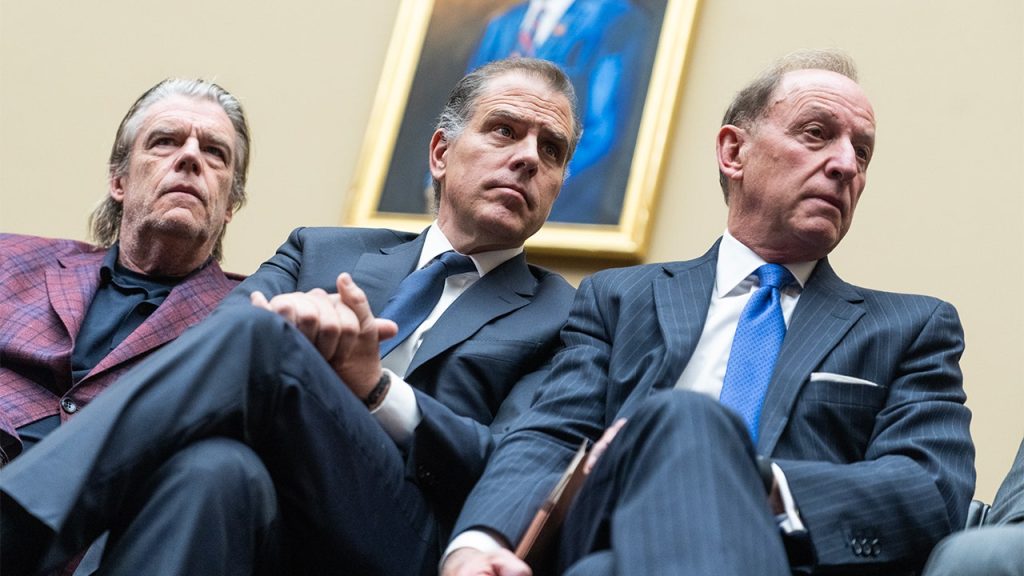The IRS whistleblower Gary Shapley revealed that he was prevented from pursuing Hunter Biden’s associate, Kevin Morris, as a witness in the investigation due to interference from the CIA. Shapley’s affidavit highlighted how Assistant U.S. Attorney Lesley Wolf and DOJ Tax Attorney Jack Morgan were summoned to the CIA headquarters in Langley, Virginia, where they were given a classified briefing that resulted in the decision to no longer pursue Morris as a witness. Wolf’s briefing was classified, making it difficult for investigators to obtain further information about the situation. Shapley raised concerns about the deviation from normal investigative processes by excluding investigators from substantive meetings and the lack of transparency regarding the CIA’s involvement in the case.
The CIA denied allegations of stonewalling the interview with Morris, stating that they did not prevent or seek to prevent the IRS or DOJ from conducting any such interview. The CIA emphasized that they cooperate with law enforcement partners and do not obstruct U.S. law enforcement investigations or prosecutions. The agency highlighted its role in facilitating the Department of Justice’s access to national security information in various circumstances, including investigations and prosecutions. While the CIA refuted claims of interference, questions remained about how the agency became aware of Morris as a potential witness in the Hunter Biden investigation and why investigators were not informed or invited to participate in the meeting at Langley.
Kevin Morris, known as Hunter Biden’s “sugar brother,” lent Hunter approximately $6.5 million, more than initially estimated. Morris had previously been subpoenaed to testify as part of the impeachment inquiry and revealed that he loaned Hunter at least $5 million, in addition to paying his tax liabilities. Morris provided details about several loans he gave to Hunter Biden, including a $1.4 million loan in October 2021 and subsequent loans totaling over $5 million. These loans were used to pay off Hunter Biden’s tax debt to the IRS. Special Counsel David Weiss later charged Hunter Biden with nine federal tax charges related to the unpaid taxes, including three felonies and six misdemeanors, totaling $1.4 million.
Hunter Biden pleaded not guilty to all charges and his tax trial was scheduled for September 5. The charges against him alleged a “four-year scheme” in which he failed to pay federal income taxes from January 2017 to October 2020 while also submitting false tax reports. Despite the charges, Hunter Biden maintained his innocence and denied any wrongdoing. The case involving Hunter Biden’s tax issues and financial dealings with Kevin Morris raised concerns about potential conflicts of interest and the need for transparency in investigations involving high-profile individuals. The involvement of the CIA in the Hunter Biden investigation further complicated the situation and raised questions about the agency’s role in influencing legal proceedings.
The revelations surrounding Hunter Biden’s financial dealings and tax issues shed light on the complexity of the case and the challenges faced by investigators and prosecutors. The allegations of interference by the CIA in interviews with key witnesses raised concerns about the transparency and integrity of the investigation. The conflicting statements from whistleblowers, the IRS, and the CIA added another layer of complexity to the case, making it difficult to ascertain the truth about what transpired. The ongoing legal proceedings, including Hunter Biden’s upcoming tax trial, underscored the importance of accountability and thorough investigations in cases involving alleged financial misconduct and tax evasion. The public scrutiny surrounding Hunter Biden’s financial affairs highlighted the need for transparency and accountability in high-profile investigations to ensure justice is served.


